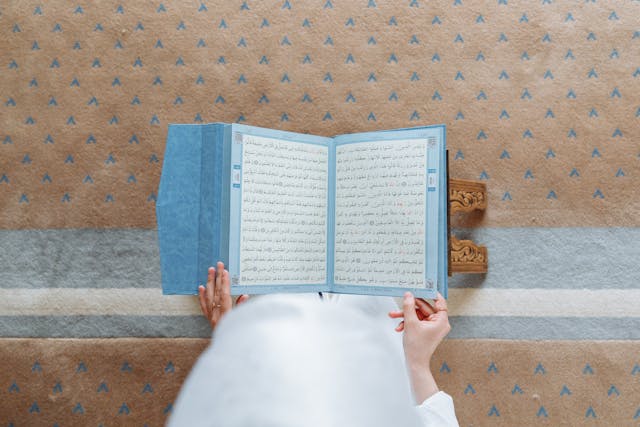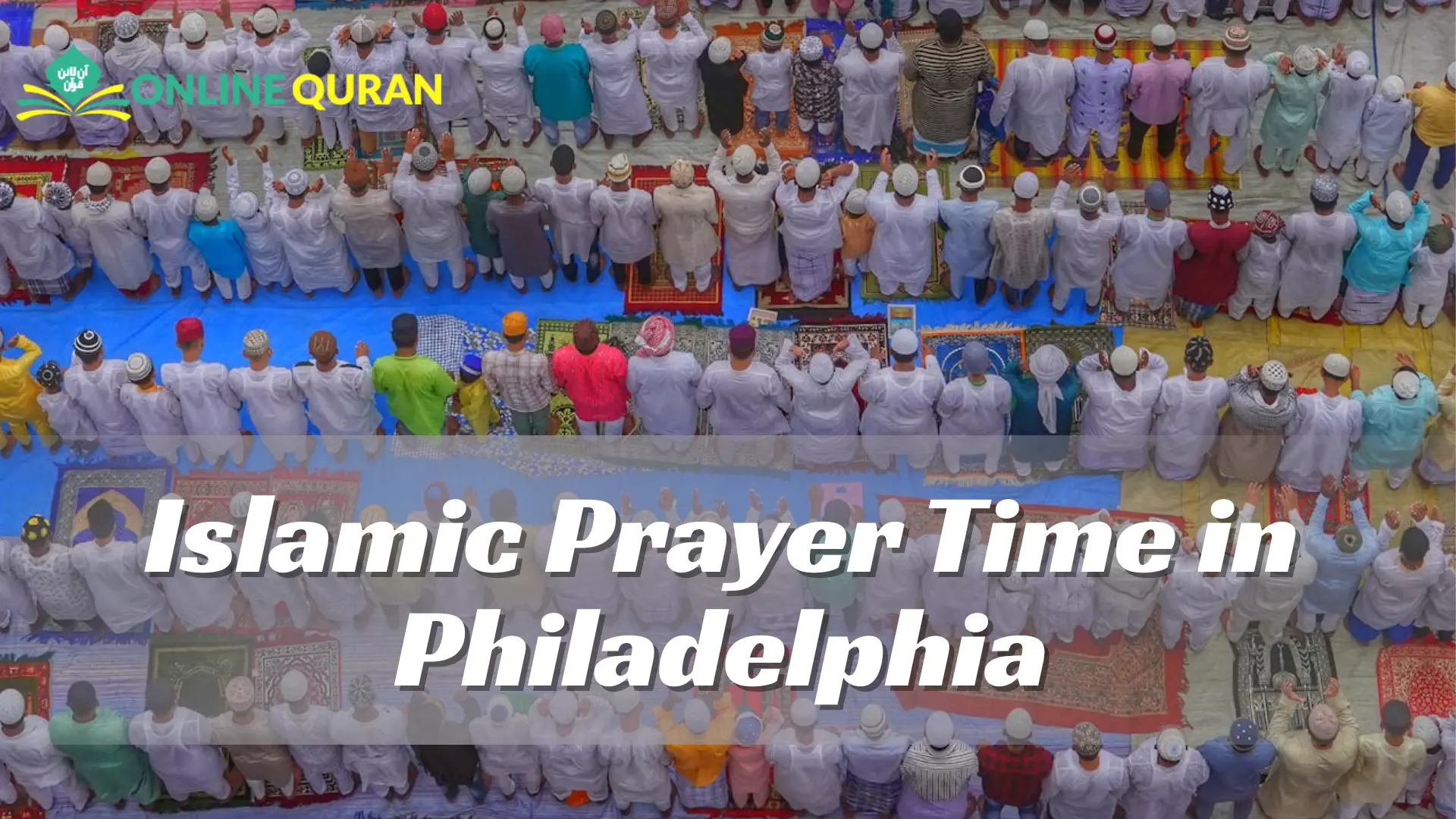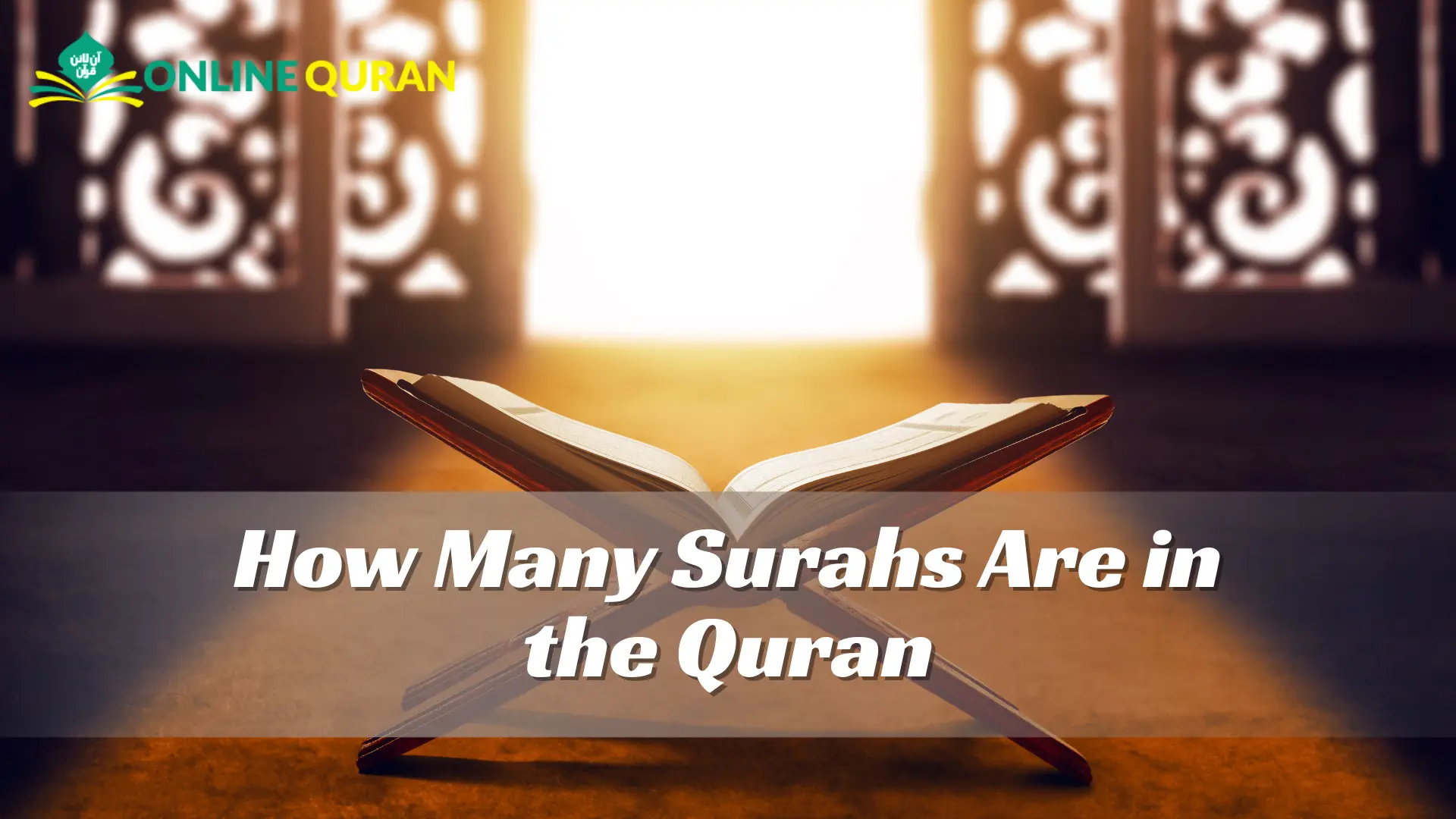Last Two Ayats of Surah Al Baqarah – A Gateway to Peace and Protection
Arabic
آمَنَ ٱلرَّسُولُ بِمَآ أُنزِلَ إِلَيْهِ مِن رَّبِّهِۦ وَٱلْمُؤْمِنُونَ ۚ كُلٌّ ءَامَنَ بِٱللَّهِ وَمَلَـٰٓئِكَتِهِۦ وَكُتُبِهِۦ وَرُسُلِهِۦ لَا نُفَرِّقُ بَيْنَ أَحَدٍۢ مِّن رُّسُلِهِۦ ۚ وَقَالُوا۟ سَمِعْنَا وَأَطَعْنَا ۖ غُفْرَانَكَ رَبَّنَا وَإِلَيْكَ ٱلْمَصِيرُ ﴿٢٨٥﴾
لَا يُكَلِّفُ ٱللَّهُ نَفْسًا إِلَّا وُسْعَهَا ۚ لَهَا مَا كَسَبَتْ وَعَلَيْهَا مَا ٱكْتَسَبَتْ ۗ رَبَّنَا لَا تُؤَاخِذْنَآ إِن نَّسِينَآ أَوْ أَخْطَأْنَا ۚ رَبَّنَا وَلَا تَحْمِلْ عَلَيْنَآ إِصْرًۭا كَمَا حَمَلْتَهُۥ عَلَى ٱلَّذِينَ مِن قَبْلِنَا ۚ رَبَّنَا وَلَا تُحَمِّلْنَا مَا لَا طَاقَةَ لَنَا بِهِۦ ۖ وَٱعْفُ عَنَّا وَٱغْفِرْ لَنَا وَٱرْحَمْنَآ ۚ أَنتَ مَوْلَىٰنَا فَٱنصُرْنَا عَلَى ٱلْقَوْمِ ٱلْكَـٰفِرِينَ ﴿٢٨٦
English Translation
285: The Messenger has believed in what was revealed to him from his Lord, and so have the believers. All of them have believed in Allah, His angels, His books, and His messengers. They say, “We make no distinction between any of His messengers.” And they say, “We hear and we obey. (Grant us) Your forgiveness, our Lord; to You is the final return.”
286: Allah does not burden a soul beyond its capacity. It will have the consequence of what good it has gained, and it will bear the consequence of what evil it has earned. (They pray): “Our Lord, do not hold us accountable if we forget or make a mistake. Our Lord, do not place on us a burden like that which You placed on those before us. Our Lord, do not impose on us what we cannot bear. Pardon us, forgive us, and have mercy on us. You are our Protector, so help us against the disbelieving people.”
Once in a while, you come across a few lines in the Quran, that feel like a warm hug from Him. The last two ayats of Surah Al-Baqarah are just that. They have a meaning that comforts you, especially in times of fear, anxiety, and guilt. It wouldn’t be exaggeration to say that, about fourteen hundred years ago, these two verses were revealed and to this day, offer a rare peace and comfort to whoever recites these with all due attentiveness.

The Beauty of the Words
The last two ayats (verses 285-286) of Surah Al-Baqarah, in completing the longest Surah of the Quran, serve to the masterpiece of the Quran. These verses address belief, responsibility, mercy, and divine compassion.
Across the first of these two verses, Allah captures the faith of the Prophet Muhammad, Peace Be Upon Him, and the believers:
“The Messenger has believed in what was revealed to him from his Lord, and so have the believers. All of them have believed in Allah, His angels, His books, and His messengers, saying, ‘We make no distinction between any of His messengers.’ And they say, ‘We hear and we obey. Forgive us, our Lord. To You is the final return.'”
From these verses, we learn the essence of a believer: unswerving faith in Allah and confidence in Him to carry out His will, a willingness to obey His commands even when His reason is not clear to us, and a disposition to ask for His mercy and forgiveness.
Subsequent Verses Provide Further Affirmation
“Allah does not burden a soul beyond what it can bear. It will have [the consequence of] what [good] it has gained, and it will bear [the consequence of] what [evil] it has earned. Our Lord, do not impose blame upon us if we forget or make a mistake. Our Lord, and lay not upon us a burden like that which You laid upon those before us. Our Lord, and burden us not with that which we have no ability to bear. And pardon us; and forgive us; and have mercy upon us. You are our Protector, so give us victory over the disbelieving people.”
When you read this, it feels like the words were meant just for you, a prayer that expresses what every human feels deep inside: weakness, hope, and the want for mercy.
What makes these ayats so powerful is that they do not feel like a command they feel like a conversation.
A devotee saying, “Ya Allah, I try. Sometimes I forget, sometimes I fail. But please, forgive me. Please make it easy.”
You’re not just saying Arabic words. You’re opening your heart. You’re extraordinarily speaking to the One who knows you best.
And the best part is, these verses are not just for the difficult times; they’re for the grateful ones too. They show you that despite life’s heaviness, “He does not burden a soul beyond its capacity.”
Also Read: How to Memorize Quran Fast and Easy: Effective Hifz Tips & Guidance
The Nightly Comfort
Many Muslims have the practice of saying these two verses before sleeping, and the Prophet Muhammad ﷺ said that whoever recites them at night, “will suffice him.”
Many scholars understand this to mean that the person will have protection from harm, peace of mind, and even spiritual completion for that night.
You can imagine lying in bed after a long day and lightly saying those words, knowing that your Allah’s mercy is covering you and is waiting for you to close your eyes.
It’s a small habit, and despite that, it’s small in a good way, because it strengthens your bond with your Creator.
A Reminder of Balance and Mercy
Verse 286 is the most comforting verse of the Quran. He does not overburden us because He understands us.
When life is overwhelming everything responsibilities, emotions, and everything else this verse reminds us that the Creator understands our pains better than anyone else.
Every burden that is given to us has purpose, and comes with the strength to endure it. Even when we forget, Allah’s mercy is there to help us.
This is the primary message of the Ayats mercy stitched with faith.

A Universal Message
These verses are indeed something special, and that’s because there is no restriction on when and where the message can be heard.
From a busy metropolis or an isolated hamlet, speaking Arabic or English, the message reaches your heart the same way.
It highlights that faith is not just a matter of belief. It is, most of all, a matter of surrender, humility, and effort within yourself to improve.
When Allah mentions “We hear and we obey,” it is not only about rule compliance. It is a recognition of His wisdom.
It is His Supreme understanding as compared to ours which is negligible. When Allah mentions “Forgive us, our Lord,” it is also His recognition of our human nature.
Redemption is a quality of the Most High.
The Gift from the Night Journey
According to a number of sources, authentic and otherwise, the Prophet Muhammad was the recipient of these 2 Ayahs during the Night Journey, Isra and Mi’raj.
It was a night of nearness to Allah. That itself is a testimony of the honor these Ayahs carry.
It was not simply a moment during which they were revealed, it was a gift, a mercy, personal to the Prophet, and to us, through him.
It would not be an overstatement to say that these Ayahs were the harmonized composite of mercy and forgiveness that Allah Himself pledged to the Prophet.
Why These Ayahs Touch Every Heart
When people listen or say these Ayahs, a strong, often emotional reaction is not uncommon. It is the peace, tears, or calm which is felt that is so often mentioned.
That is because these words speak to the deepest and most profound need of every human being the need to be understood, to be redeemed, and most importantly, to be loved.
They remind you that no matter how imperfect you are, you’re still seen, still heard, and still loved by Allah.
These ayats don’t demand perfection; they invite sincerity.
A Dua That Covers Everything
If you read the last verse carefully, you’ll notice that it contains everything we could ever need in a dua:
-
Asking forgiveness for mistakes and forgetfulness.
-
Asking for strength in facing life’s burdens.
-
Asking for pardon, mercy, and protection.
It’s like the ultimate prayer a combination of humility and hope.
Every time you recite it, you’re reaffirming that your strength comes not from yourself but from Allah.
Bringing It Into Your Life
Start small. Add these verses to your nightly routine. Don’t just read them feel them.
Learn their meaning. Whisper them before sleeping. If you ever wake up anxious or restless, recite them again.
You’ll notice a difference, even if subtle at first.
Many who make these verses a regular part of their life describe an inner calm that’s hard to explain.
It’s not magic; it’s faith. It’s the peace that comes from remembering your Creator before you sleep and waking up with a lighter heart.
Final Thoughts
The last two ayats of Surah Al-Baqarah are not just the ending of a chapter they remind you that wherever you are in life, the mercy of Allah is with you.
They encapsulate the spirit of Islam in its entirety: the faith, the obedience, the forgiveness, and the hope.
So, tonight, before you sleep, take a moment and recite these verses. Reflect on the meaning and allow its tranquility to enter your heart.
For sometimes, the greatest source of solace can come from the most simple of acts: a recitation.
That is the enduring beauty of the Quran.
FAQs
What are the benefits of Surah Al-Baqarah last 2 ayat?
The last two verses of Surah Al-Baqarah (Ayat 285–286) bring immense spiritual protection and blessings. They strengthen faith, remove fear and anxiety, and grant forgiveness from Allah. According to Hadith, whoever recites these verses at night will be protected from harm and evil until morning.
What problems do the last 2 ayat solve?
These verses help relieve worries, protect from evil, and bring peace to the heart. They are known to remove difficulties, protect one’s home from jinn and shaitan, and ease emotional stress or grief. Reciting them regularly brings divine support and tranquility.
What are the benefits of Amana Rasul ayat?
“Amana Rasul” (the beginning of Surah Al-Baqarah’s last two ayat) reminds believers of their faith, obedience, and trust in Allah. Reciting it brings Allah’s mercy, strengthens belief, and shields a person from misfortunes. It’s also a source of spiritual light and guidance.
When should we read the last two ayat of Surah Baqarah?
The best time to recite the last two ayat of Surah Al-Baqarah is at night before sleeping. Prophet Muhammad (ﷺ) said that whoever recites them at night, they will be sufficient for him meaning they will bring protection, blessings, and reward throughout the night.
If you want to learn the Quran deeply and understand it from different perspectives, Visit: Courses



